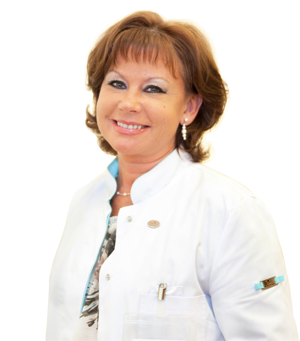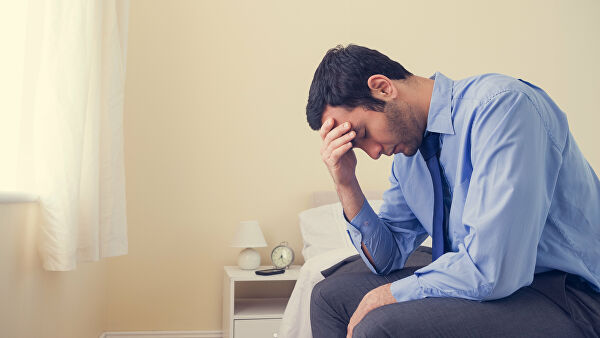Depression

General practitioner
Olga Berezhko
Experience 36 year
The term 'depression' refers to a range of depressive disorders that indicate a serious disturbance in a person's activity and a decrease in his interest in the world around him and in his own life. It is difficult to establish the exact cause of depression, as several factors are possible: hereditary, physiological, neurological and psychosocial. It is possible to make an accurate diagnosis after studying anamnesis of a patient.
Aetiology of the disease
The classification of depression suggests a division into the following groups:
- major depressive disorder;
- chronic depressive disorder;
- depressive disorder with a specified or unspecified aetiology: premenstrual disorders, depression due to health disorders, consequences of taking psychoactive drugs.
Most cases of depression have a clear age reference: adolescence or the age of 20-30. Women are more likely to be depressed because of their psyche. The exact causes of this phenomenon have not yet been established.
A state of demoralisation associated with unpleasant events in the patient's life significantly differs from clinical depression. There are a number of characteristic signs that indicate temporary psycho-emotional difficulties, which go away within a few days without specific treatment:
- mood deterioration manifests itself in outbreaks and it is not of a permanent, protracted nature;
- as events change, the person's mood improves and his or her mental state returns to normal;
- mood declines may alternate with cheerfulness and stable well-being;
- the person does not have suicidal thoughts, feelings of self-hate or worthlessness.
If the patient is prone to depressive states in demoralisation, there may be individual signs of major depression.
Causes of depression
 Experts connect the manifestation of depression with environmental factors and genetic predisposition. However, they consistently point out that it is impossible to identify the exact cause of this illness. Official medicine confirms a hereditary pattern in more than half of the diagnosed cases: first-line relatives, identical twins. According to popular theories, malfunctions of the hypothalamus, pituitary gland, or adrenal glands, which produce important hormones for humans, may affect the development of depression. Disturbances in the functioning of these organs can cause prolonged depressive conditions.
Experts connect the manifestation of depression with environmental factors and genetic predisposition. However, they consistently point out that it is impossible to identify the exact cause of this illness. Official medicine confirms a hereditary pattern in more than half of the diagnosed cases: first-line relatives, identical twins. According to popular theories, malfunctions of the hypothalamus, pituitary gland, or adrenal glands, which produce important hormones for humans, may affect the development of depression. Disturbances in the functioning of these organs can cause prolonged depressive conditions.
A significant role in the appearance of signs of major or chronic depression is played by the psycho-emotional state impaired by experienced problems: divorce, loss of a loved one, financial losses.
When talking about women's predisposition to depression, experts suggest several reasons:
- vulnerability to daily stress due to high mental stress;
- high risk of thyroid dysfunction;
- hormonal changes related to menstrual cycle or menopause;
- increased levels of monoamine oxidase, an enzyme that contributes to the destruction of neurotransmitters that determine a patient's mood level.
Symptomatic pattern of the disease
Signs of depression depend a lot on the nature of the illness and help professionals make an accurate diagnosis.
1. In a state of major depression, the patient has a tired and sad appearance, lack of eye contact, emotionlessness, suppression and reserved speech. There may be eating and personal hygiene problems. Other typical symptoms of depression include: decreased interest in favourite activities, insomnia, weight loss or sudden weight gain, indecisiveness, inability to concentrate, obsessive thoughts of death or suicide and lethargy.
2. In a chronic state of depressive disorder, signs of the illness are observed for 2 years or more. The patient experiences anxiety, obvious personality disorders, increased criticism of him/herself and others, withdrawnness and low self-esteem. A chronic condition is also indicated by fatigue, inability to concentrate, hopelessness, insomnia or excessive sleepiness, weakness and moodiness.
3. Premenstrual depressive disorder causes women to experience severe mood changes, anger and irritability, restlessness and tension a week before the expected start date of the cycle. Interest in habitual activities decreases, concentration is reduced and there is increased fatigue and feeling of depression.
4. In depressive disorders of unclear aetiology, anxieties, marked manic syndromes (feelings of superiority, talkativeness or high spirits), reduced emotional responsiveness to pleasant events, delusional or hallucinatory states and psychomotor retardation are seen in both sexes.
The symptomatic pattern of different types of depression varies from patient to patient.
Complications of depression
An increase in the pathological situation against the background of the patient's refusal of professional help can cause the following dangerous phenomena:
- an increase in symptoms of depression;
- an increase in the incidence of depression;
- a prolonged illness, the duration of which increases as the attacks become more frequent;
- cases of double depression, when more "superficial" experiences are superimposed on severe psychological problems and develop stages of depression that are difficult to treat;
- difficulties in finding an appropriate therapy when the disease does not respond to classical treatments and requires the use of more "heavy" drugs with a high risk of side-effects.
Diagnosis of depression
 Treatment of depression is the domain of a therapist, psychologist and psychiatrist, but their collegial cooperation is optimal. The signs of depression can be recognised and an accurate diagnosis can be made through questionnaires, complaints by patients and relatives about characteristic changes in the patient’s feelings and moods. In personal communication with the patient, the doctor clarifies the duration of the disease, as well as sensitively clarifies the occurrence of possible thoughts of harm to him/herself or others. Also, co-existing conditions such as alcohol and drug use, smoking, unbalanced diet, etc., must be investigated.
Treatment of depression is the domain of a therapist, psychologist and psychiatrist, but their collegial cooperation is optimal. The signs of depression can be recognised and an accurate diagnosis can be made through questionnaires, complaints by patients and relatives about characteristic changes in the patient’s feelings and moods. In personal communication with the patient, the doctor clarifies the duration of the disease, as well as sensitively clarifies the occurrence of possible thoughts of harm to him/herself or others. Also, co-existing conditions such as alcohol and drug use, smoking, unbalanced diet, etc., must be investigated.
The differential diagnosis of depression is important to distinguish it from other similar psychiatric pathologies: bipolar disorder, anxiety, demoralisation, signs of dementia or hormonal disorders related to thyroid dysfunction.
Treatment options
A depression treatment course includes:
- Drug treatment is developed taking into account the patient's condition, reaction to previous courses and the risk of side effects. Antidepressant medications suppress certain hormones that contribute to depression and restore hormonal balance in the body.
- Supportive treatment means regular visits to your specialist to check the results of the treatment, correct the chosen course, get the necessary explanations, etc.
- Additional methods of treatment: psychotherapy, phototherapy, electroconvulsive therapy, deep brain stimulation techniques, etc.
If all the recommendations of the specialist are followed and the course is completed, stable positive results can be achieved within a few weeks, while reducing the risk of recurrence of depressive states.
FAQs about depression
How to get rid of depression on your own?
Attempts to deal with depression on one's own usually end in failure and the appearance of signs of a deeper disorder. Only an experienced doctor will be able to identify the type of illness and choose the best treatment.
Why is depression dangerous?
Voluntary refusal of a course of treatment with the intention to overcome this disease independently can have the most severe consequences. For example, the emergence of suicidal thoughts, deep mental disorders, the multiplication of attacks, personality degradation in the professional and family plan, the appearance of a predisposition to alcohol and drugs. It is useless to treat all these symptoms with conventional treatments, and taking strong drugs can cause side-effects.
How to overcome depression?
It is important to understand that depression is a serious mental disorder. And to cope with it will be possible only after a course of complex treatment with the obligatory acceptance of drugs and additional methods of correction of the psycho-emotional state. Treatment under the supervision of an experienced specialist will help to fully cope with this disease and reduce the risk of relapse even when exposed to negative factors.




